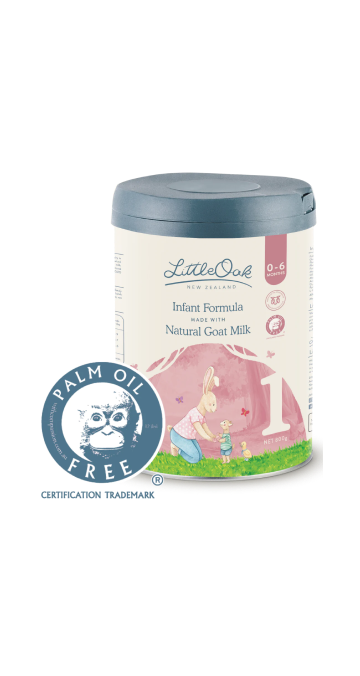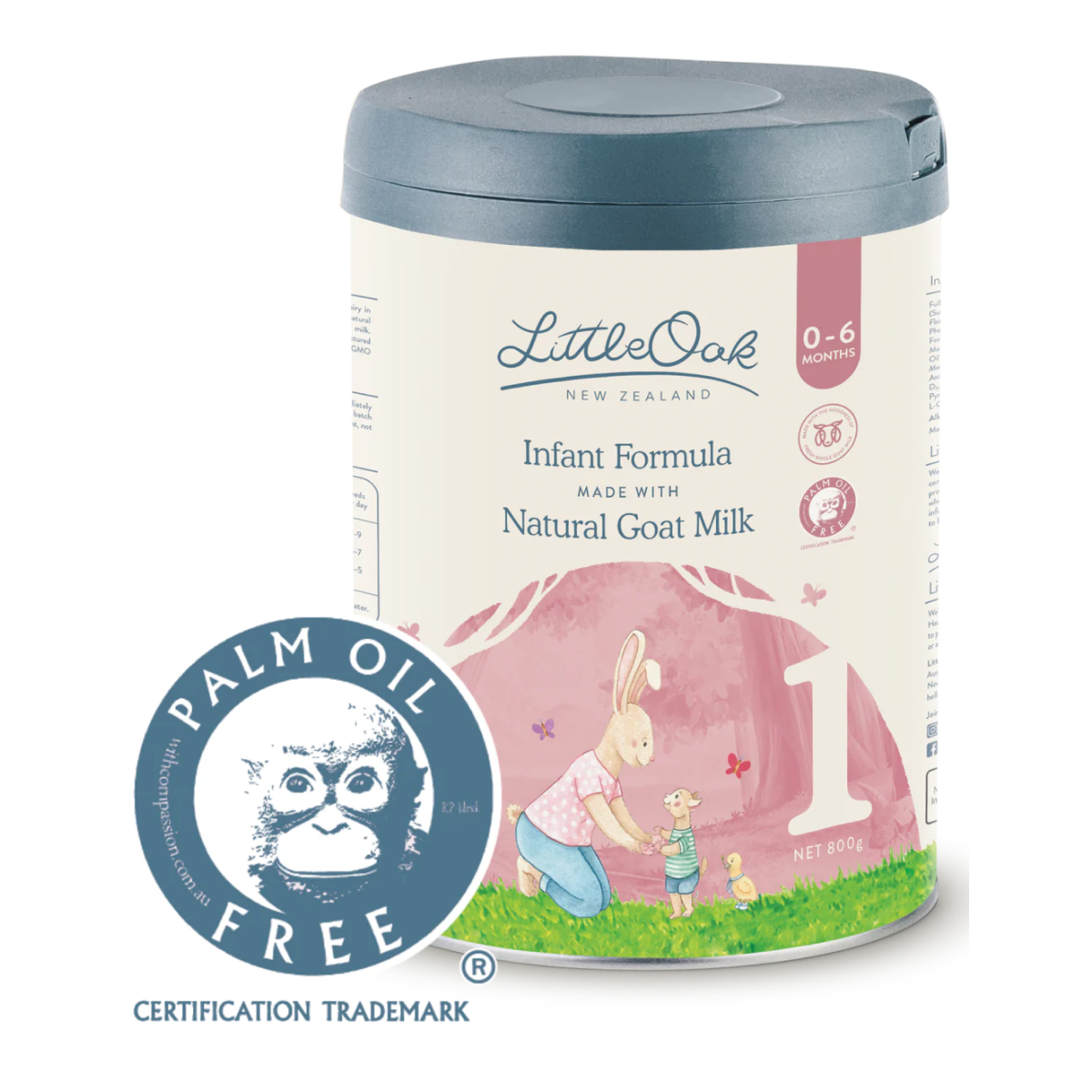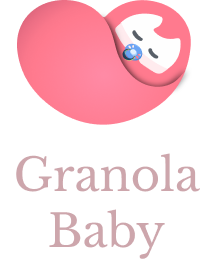
Choosing the Best Infant Formula for Your Baby
Planning to go all-in with formula, mix it up with a combo of breastmilk and formula, or just want to keep some handy "just in case"? You’re not alone if you feel swamped by the endless choices out there. But don’t worry: While there’s no such thing as the “perfect” formula, there’s definitely one out there that’s just right for your little munchkin. Here’s the scoop on choosing the best baby formula for your sweet pea.

LittleOak Organic Baby Formula
- Complete nutrition modeled after breastmilk
- Naturally occurring A2 proteins
- Sourced from grass-fed New Zealand goats
- World's first no palm oil formula
What is infant formula?
The American Academy of Pediatrics (AAP) does recommend breastfeeding exclusively for the first 6 months. But let’s be real—not everyone finds that feasible or ideal. That’s where baby formula steps in! Infant formula is the top-notch substitute for breastmilk, perfect for little ones under 12 months old. During this first year, babies grow to three times their size, so their nutrition needs are through the roof. Good news: The Food and Drug Administration (FDA) ensures that all infant formulas sold in the U.S.—regardless of cost, brand, or type—meet stringent federal nutrition guidelines. Fun fact: Infant formula was created by a chemist way back in 1865, and it included cow’s milk, wheat and malt flour, and potassium bicarbonate. Doesn’t that make you appreciate modern science just a little bit more?
What ingredients are found in baby formula?
All baby formulas, despite their fancy labels, cute colors, and varying price points, need to pack in some essential goodness. Here’s the lowdown on what’s definitely in your baby’s formula:
- Calories: Those tiny brains are growing fast and need fuel! Most baby formulas offer 19 to 20 calories per ounce to keep up with all that rapid development.
- Carbohydrates: Think zero low-carb diets here! Carbs are crucial for baby’s energy. They can come from sources like corn syrup solids, maltodextrin, sucrose, or the naturally occurring sugar in breast milk, lactose.
- Protein: From soft baby hair to fingernails, protein is key for overall growth. It’s the superhero building block for cells, skin, and organs. Formula usually sources protein from nonfat milk, milk protein isolate, whey, casein, soy, and amino acids.
- Fats: Essential for healthy growth, fats in formula can be listed as vegetable oil, palm olein oil, coconut oil, canola oil, or corn oil.
- Vitamins and minerals: Tiny tots need their vitamins! Formulas come packed with goodies like vitamins A, D, K, C, choline, calcium, and iron. This helps prevent deficiencies and gives them the strongest start. By regulation, all infant formulas must contain at least 29 nutrients and can only max out on nine of them. Special care formulas (think preemie, metabolic, amino acid-based) might mix things up a bit.
Pro Tip: If you’re not breastfeeding, make sure your baby gets an iron-fortified formula with 4 to 12 milligrams of iron for that crucial first year.
Beyond the essentials, many baby formulas come with some bonus ingredients, like...
- Long-chain fatty acids: We're talking about Docosahexaenoic acid (DHA) and arachidonic acid (ARA) here, which are naturally found in breastmilk. While the AAP highlights their importance for early brain development, the jury's still out on how beneficial they really are in formula.
- Probiotics and prebiotics: Think of probiotics as the good bacteria and prebiotics as their favorite snack. These two are generally fantastic for gut health, but the AAP notes there's limited evidence to prove their benefits in baby formula just yet.
- Human milk oligosaccharides (HMOs): These are naturally occurring in breastmilk and help ward off infections. Research shows that when breastmilk isn't an option, formulas with HMOs could be a worthwhile alternative.
- Lutein: Found naturally in breastmilk, lutein is a carotenoid and antioxidant thought to support eye health and cognitive development. However, studies reveal that babies absorb more lutein from nursing than from formula fortified with it, so the impact of adding this into formula is still unknown.
What Varieties of Baby Formula are Out There?
Beyond powders, concentrates, and ready-to-feed liquids, the world of baby formula is more versatile than ever before. Don't worry, they're all designed to be nutritious and safe for your little one, but each type has its unique perks.
Cow’s Milk-Based Infant Formula
While regular cow’s milk is a no-go for our tiny tots under 12 months, cow’s milk-based baby formula steps up to safely nourish your bundle of joy. Like breastmilk, these formulas contain lactose, the natural milk sugar. (For those babies with lactose sensitivity, we’ve got sensitive or gentle formula options with lower lactose levels). Currently, cow’s milk-based formula makes up 80% of all baby formula on the shelves, and most little ones thrive on it. For those who don’t, it might be cow’s milk protein allergy (CMPA) playing spoilsport. CMPA means their little tummies can’t handle whey and/or casein found in cow’s milk. This can show up as skin issues, tummy troubles, or even breathing difficulties in your baby.
Fun fact: Back in the day, from the 1930s to the 1940s, pediatricians actually recommended condensed milk for infant feeding! How times have changed!
Soy Infant Formula
Soy-based baby formula is a superstar for lactose-free nutrition, especially for infants diagnosed with a rare condition called galactosemia, where lactose is a no-go. (FYI, your newborn will be screened for this at birth.) While it’s true that some babies experience short-term lactose intolerance, significant long-term issues with lactose are pretty uncommon, according to the American Academy of Pediatrics (AAP). There's a myth floating around that soy baby formula can help with colic, but the science just doesn't back it up. Ultimately, the AAP suggests that there are only a few situations where soy formula should trump cow’s milk–based options.
Fun Fact: The first soy-based infant formula hit the shelves in 1929. However, like other formulas from that era, it lacked some critical vitamins and nutrients.
Hydrolyzed and Partially Hydrolyzed Infant Formula
Though infant formulas might sound like advanced science, it really comes down to protein sizes. Regular cow’s milk formula has large, whole proteins, but some babies struggle to digest them. When that happens, babies need a formula with smaller proteins. (Hydrolyzed means “broken down,” so hydrolyzed formulas have smaller, easier-to-digest proteins.)
Sensitive and gentle formulas usually have partially hydrolyzed protein, which can help with gassiness. On the other hand, fully hydrolyzed formulas are broken down even more and are best for babies with serious issues like cow’s milk protein allergy or multiple food allergies.
Did you know? These types of infant formulas are often called “predigested,” since the proteins are already tiny and easier for your baby to handle.
Organic Baby Formula
For a baby formula to earn that coveted “certified organic” badge from the U.S. Department of Agriculture, at least 95% of its ingredients must be organic. That means if you’re opting for cow’s milk organic infant formula, those cows need to have dined exclusively on organic meals. If it’s a plant-based formula you’re after, the plants must have minimal pesticide exposure and be GMO-free. While organic formulas come with a higher price tag, there’s currently no strong evidence showing they’re superior to non-organic formulas with the same nutrition and safety standards.
Did you know? "Organic" doesn’t necessarily make your baby formula all-natural. Some essential nutrients and preservatives can only be created synthetically, even in the most rigorously organic formulations.
Special Infant Formula
There are also other baby formulas created to meet the unique needs of little ones with special medical conditions or those born a bit early. If your baby’s pediatrician suggests a specialized formula, make sure to follow their guidance on the amount to serve, feeding schedules, and how to prepare it, as these special formulas can be quite different from the regular stuff.

Our #1 pick for the most nutritious infant formula
LittleOak products are designed to meet the dietary needs of growing little ones. It is made with fresh whole goat milk straight from dairy in New Zealand.
Guidelines for Choosing the Ideal Infant Formula
Start with a Standard Commercial Baby Formula
Unless your baby’s pediatrician suggests otherwise, it's usually best to kick things off with a standard cow’s milk-based infant formula. This is what the majority of babies thrive on. A word to the wise: steer clear of non-U.S. brands since the FDA regulates only American baby formulas.
Consider Cost
Brace yourself—the price of baby formula might have you wishing you’d put a thousand cans on your baby registry! If your baby drinks around 25 ounces of formula a day, you’re looking at a cost ranging from **$821 to $2,920 by their first birthday**. It’s smart to factor in your budget when selecting your go-to infant formula. Remember, powdered formula will always be kinder to your wallet than the liquid variety.
Choose Convenience
Opt for a baby formula that’s easily available at stores near you. Yes, online shopping is an option, but shipping delays can add unnecessary stress. Shopping locally can be a real sanity-saver.
Try Not to Let Marketing Claims Sway You
You’ve probably seen baby formulas boasting about enhancing brain power or boosting immunity. While these claims sound great, the science backing them is often shaky. So, don’t get too caught up in the hype.
Get Support in Your Decision-Making Process
While advice from your sister, neighbor, social media, and Google can be helpful, your best bet is to get the lowdown from your baby’s pediatrician. They know your baby’s health and medical history the best, placing them perfectly to help you navigate the decision-making process. (Plus, they might have some free formula samples in the office!)
Take a Deep Breath
Your baby has unique needs, and there’s a formula out there that will meet them. If your little one starts showing issues like severe gas, colic, reflux, vomiting, or diarrhea, don’t hesitate to reach out to the pediatrician. They can help determine whether the infant formula might be the cause.
